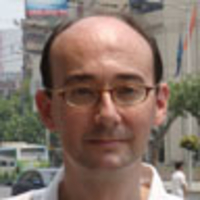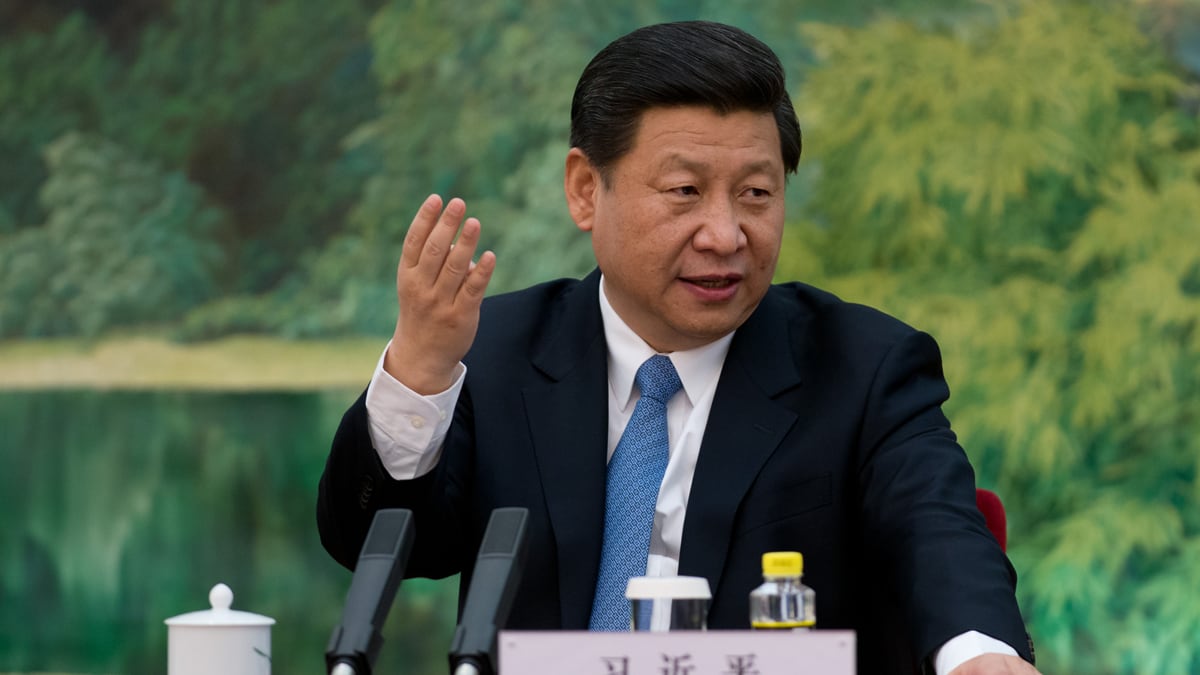The destination of Xi Jinping’s first visit outside Beijing since taking over as Communist Party general secretary last month could not have been more symbolic: the southern special economic zone of Shenzhen, across the border from Hong Kong, has been the laboratory for China’s economic reforms over the past three decades. Just as significantly, it was here that the late leader Deng Xiaoping, seen as the architect of China’s post-Mao reforms, came in 1992 on his famous "southern tour," which is credited with reviving economic reform after it stalled following the crackdown on the Tiananmen Square protests of 1989.
After a low-profile first day in the city, during which he visited Tencent, one of China’s biggest internet companies, and an industrial innovation zone, Xi began his second morning by leading a delegation of local officials to lay a wreath at a statue of reformist leader Deng on a hillside overlooking the city. To reinforce the symbolism, he also met with four retired officials who had accompanied Deng on his tour of the city 20 years ago—Hong Kong’s Phoenix television showed Xi telling them that time had shown that “the path of reform and opening up is correct. We must stick to this path and make new progress.”
Other leaders have visited Shenzhen in the past two decades—Xi’s predecessor Hu Jintao went to the city two years ago—but with rumors swirling of continuing divisions over the country's future economic direction among different factions in China’s new leadership, the choice of venue for this first visit appeared to be no accident. Professor Jean-Pierre Cabestan, a specialist in Chinese politics at Hong Kong’s Baptist University, said it was “clearly designed to send a message to conservatives, one of more reform and opening up.” And Hong Kong–based commentator Johnny Lau told the South China Morning Post that it was significant that Xi had chosen to visit private companies in Shenzhen, at a time when such businesses are still seeking greater official support, despite having become a mainstay of the economy.
Cabestan added that Jinping’s visit was also designed to pay homage to his own father, Xi Zhongxun, a veteran revolutionary who set up Guangdong’s special economic zones, which pioneered China’s experiments with capitalism, with Deng Xiaoping’s blessing in 1979. “Shenzhen is the place Xi’s father created,” he said. “By following in his footsteps he wants to emphasize his own links to those leaders.”
By Saturday evening local time, Xi’s tour had still not been reported in China’s official media (though information was circulating online); experts said this could mean that officials were carefully editing material from the trip to ensure that Xi’s message was delivered to the public in the desired way. But the visit seems to be the latest in a series of moves aimed at stressing his reformist credentials. This month, China’s new top leadership called for a reduction in the pomp and ceremony involved in official events—fewer motorcades and welcoming ceremonies, and shorter speeches—and also instructed state media to spend less time reporting on the activities of officials and more on real social issues.

Such moves seem designed to bring the leadership into line with a society that has been transformed by the arrival of the Internet, which ordinary people now routinely use to criticize official corruption and abuses of power. And Phoenix TV noted that Xi’s visit to the Deng memorial was low key, with ordinary members of the public not forced to leave the area, as is often the case during such visits.
Xi also took the unusual step this week of inviting a group of foreign academics and businesspeople working in China to a meeting at which they were asked to offer suggestions regarding China’s future development. Again, it was a move apparently designed to reassure the outside world of China’s commitment to opening up, according to Cabestan, and state media headlined Xi as saying that “we can’t continue to rebuild the nation if we shut our doors to the outside world.”
Yet Cabestan noted that other comments and actions made by the new leadership over the past few weeks have caused some concern internationally—notably apparent warnings to China’s neighbors that the country will take a hard line over territorial disputes in the surrounding oceans. And he suggested that Xi was seeking to appeal to various constituencies. “His message to the outside is one of reform,” he said, “but within the Communist Party his style has remained very orthodox.”
Still, the past few weeks have seen a flurry of activity apparently aimed at demonstrating that Xi’s call to root out corruption from the Communist Party is serious. In the past week, new anti-corruption czar Wang Qishan solicited advice from legal scholars at a public meeting, while the deputy party secretary of Sichuan province, Li Chuncheng, became the highest-profile official reportedly placed under investigation for corruption charges since the party congress. And more than a dozen other regional officials are also being investigated, many after being denounced online.
Cabestan, however, suggested that the suspension of Li, who had only just been elected an alternate member of the Communist Party’s central committee, could imply “a certain disorder” within the party, suggesting that either “the outgoing officials didn’t do a good job in vetting personnel or that infighting between different factions is still continuing.” And a state-run newspaper, the Global Times, quoted a leading academic, Xu Xianglin, as noting that the apparent reliance on Internet denunciations to unmask corrupt officials “indicates that a smooth channel to report to party discipline authorities” is still lacking.
But the Global Times also suggested there had been a surge of enthusiasm among online whistleblowers who are taking the party’s call for public “supervision” of officials at face value. The past week also saw two rare cases of senior officials being denounced by Chinese media organizations—a deputy head of traffic management in Beijing was accused of corruption by a magazine owned by the official Xinhua news agency, and a senior energy official was accused online of a range of abuses by an editor from Caijing, a leading business magazine—though both have denied the charges.
And there are clear signs that more liberal voices in China see the handover to the new leadership as a chance to make their voices heard: a number of intellectuals, including influential legal scholar He Weifang, signed an open letter to Xi this week calling for the release of jailed Nobel Peace Prize laureate Liu Xiaobo. And a conference organized by the liberal business magazine Caixin heard calls for deeper legal reform to prevent abuses of power—speakers included a lawyer previously jailed by the now disgraced former Chongqing party secretary Bo Xilai (whose wife was jailed for the murder of British businessman Neil Heywood), and a rare public appearance by Hu Deping, son of Hu Yaobang, the Communist Party general secreary ousted in the late 1980s for being too liberal, whose death sparked the protests in Tiananmen Square in 1989.
How serious any changes in approach by the top leadership are remains to be seen. China’s leaders are clearly determined to maintain the Communist Party’s monopoly on power, and even the depth of commitment to further marketizing China’s economy has been questioned. Cabestan notes that the current party secretary of Guangdong province, Wang Yang, seen as a supporter of deeper economic reform, may soon be moved to Beijing, and adds that “we will have to see whether Xi Jinping is willing to tell China’s state-owned enterprises, which are still very powerful, that he will give more space to private business.”
And despite the pledge for more "real" news coverage, TV news reports on Friday and Saturday still focused on formulaic stories, including in-depth coverage of meetings between the head of China’s legislature and local politicians in Argentina. But there was also a reminder for Chinese officials of the pressure to do more to appeal to public opinion: on the day of Xi’s arrival in Guangdong, Chinese media reported a survey in the province that suggested around two thirds of those polled believed that local officials were corrupt, and felt that this had damaged the credibility of the government and party.






